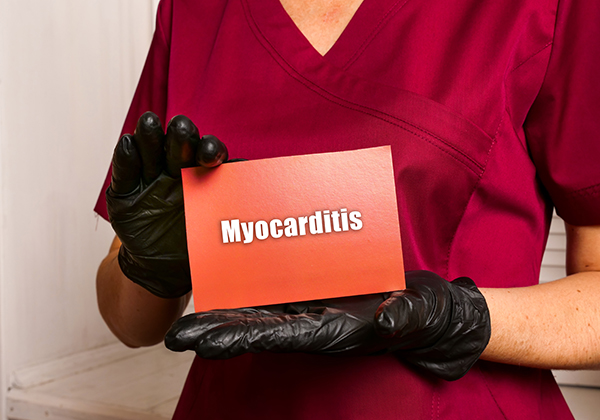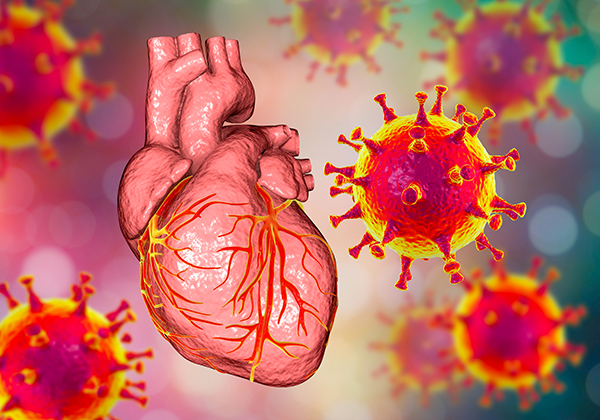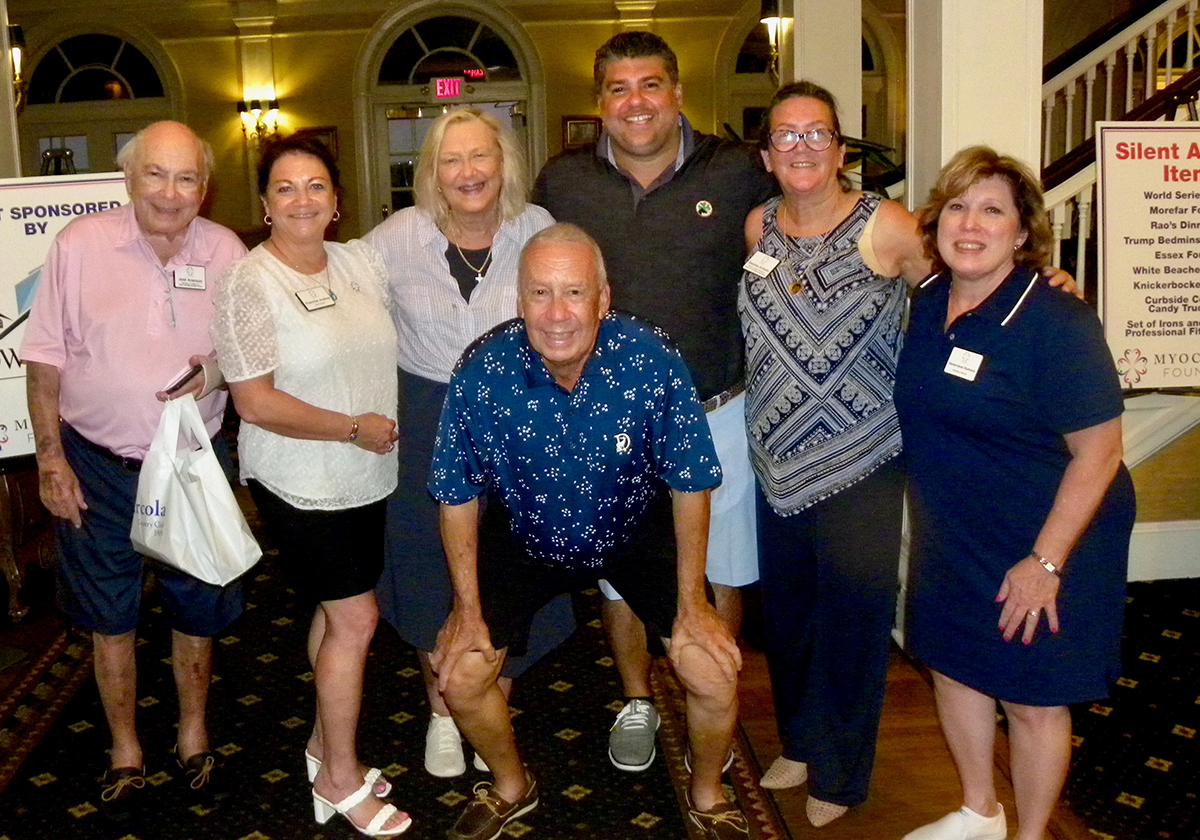(281) 713-2962
800 Rockmead Drive, Suite 155
Kingwood, TX 77339
[email protected]
Phase 2/3 Study of KPL-387 in Recurrent Pericarditis
Status: Not yet recruiting
Location:
Conditions:
City/State:
Contact Information:
Phone Number: 781-431-9100
Email: [email protected]
Brief Summary
This study is being done to demonstrate whether KPL-387 is an effective and safe treatment for recurrent pericarditis.
Detailed Description
This clinical trial is comprised of 3 separate study parts: Phase 2, Phase 3, and Long-Term Extension. The primary objective of Phase 2 is to evaluate how well different dose regimens of KPL-387 control the pain and inflammation of pericarditis in a group of participants experiencing an acute episode of recurrent pericarditis. This part of the study will confirm the KPL-387 dose regimen to be further tested in Phase 3 and the Long-Term Extension. The primary objective of Phase 3 is to confirm the efficacy of KPL-387 for the treatment of recurrent pericarditis and reduction in risk of recurrence in an additional group of participants experiencing an acute episode of recurrent pericarditis. Participants who complete Phase 2 or Phase 3 may be eligible to participate in the Long-Term Extension. The primary objective of the Long-Term Extension is to assess the long-term efficacy of KPL-387 while maintaining long-term disease control. All of the study parts also have other objectives to learn about the safety, tolerability, concentration of KPL-387 in blood, and effects of KPL-387 on blood test markers of immune activity in recurrent pericarditis.
Read moreCOR-INSIGHT: Optimizing Cardiovascular and Cardiopulmonary Outcomes with AI-Driven Multiplexed Indications Using COR ECG Wearable (COR-INSIGHT)
Status: Enrolling by invitation
Location: Peerbridge Health
Conditions: Peerbridge Health
City/State:
Melbourne. Florida
Contact Information:
Brief Summary
The COR-INSIGHT trial aims to evaluate the effectiveness of Peerbridge COR advanced ambulatory ECG wearables (COR 1.0 and COR 2.0) in accurately and non-invasively detecting cardiovascular and cardiopulmonary conditions using AI-based software (CardioMIND and CardioQSync). The study devices offer non-invasive, multiplexed, AI-enabled direct-from-ECG detection as a novel alternative to traditional diagnostic methods, including imaging, hemodynamic monitoring systems, catheter-based devices, and biochemical assays. Continuous COR ECG data collected in hospital, outpatient clinic, or home settings will be analyzed to evaluate the predictive accuracy, sensitivity, specificity, and performance of these devices in differentiating between screen-positive and screen-negative subjects.
The panel of screened indications encompasses a broad spectrum of clinically relevant cardiovascular, cardiopulmonary, and sleep-related diagnostic parameters, which are critical for advanced patient assessment and management. In the cardiovascular domain, the protocol emphasizes the detection and classification of heart failure, assessment of ejection fraction severity, and identification of myocardial infarction, including pathological Q-waves and STEMI. It further addresses diagnostic markers for arrhythmogenic conditions such as QT interval prolongation, T-wave alternans, and ventricular tachycardia, as well as insights into ischemia, atrial enlargement, ventricular activation time, and heart rate turbulence. Additional parameters, such as heart rate variability, pacing efficacy, electrolyte imbalances, and structural abnormalities, including left ventricular hypertrophy, contribute to comprehensive cardiovascular risk stratification.
In the non-invasive cardiopulmonary context, the protocol incorporates metrics like respiratory sinus arrhythmia, cardiac output, stroke volume, and stroke volume variability, providing critical insights into hemodynamic and autonomic function. The inclusion of direct-from-ECG metrics for sleep-related disorders, such as the apnea-hypopnea index, respiratory disturbance index, and oxygen saturation variability, underscores the protocol’s utility in addressing the intersection of cardiopulmonary and sleep medicine. This multifaceted approach establishes a robust framework for precision diagnostics and holistic patient management.
The COR 1.0 and COR 2.0 wearables provide multi-lead ECG recordings, with COR 2.0 offering extended capabilities for cardiopulmonary metrics and longer battery life (up to 14 days). COR 2.0 supports tri-modal operations:
(i) Extended Holter Mode: Outputs Leads II and III, mirroring the functionality of COR 1.0 for broader ECG monitoring applications.
(ii) Cardiopulmonary Mode: Adds real-time recording of Lead I, V2, respiratory impedance, and triaxial accelerometer outputs, providing advanced cardiopulmonary insights.
(iii) Real-Time Streaming Mode: Streams data directly to mobile devices or computers via Bluetooth Low Energy (BLE), enabling real-time waveform rendering and analysis.
The COR 2.0 units are experimental and not yet FDA-cleared.
Primary endpoints include sensitivity (true positive rate) > 80%, specificity (true negative rate) > 90%, and statistical agreement with reference devices for cardiovascular, cardiopulmonary, and sleep metrics. Secondary endpoints focus on predictive values (PPV and NPV) and overall diagnostic performance. The study employs eight distinct sub-protocols (A through H) to address a variety of cardiovascular, cardiopulmonary, and sleep-related diagnostic goals. These sub-protocols are tailored to specific clinical endpoints, varying in duration (30 minutes to 14 days) and type of data collection. Up to 15,000 participants will be enrolled across multiple sub-protocols. Screening ensures eligibility, and subjects must provide informed consent before participation. Dropouts and non-compliant subjects will be excluded from final analyses.
Detailed Description
The COR-INSIGHT trial is a clinical study designed to evaluate the effectiveness of Peerbridge COR ambulatory ECG wearables, COR 1.0 and COR 2.0 (“CORMDX”). These devices integrate advanced AI technologies, including CardioMIND and CardioQSync, to accurately detect a broad spectrum of cardiovascular and cardiopulmonary conditions. By offering multiplexed diagnostics via direct-from-ECG analysis, the trial seeks to validate an alternative to traditional diagnostic modalities such as imaging, catheter-based techniques, and biochemical assays.
COR-INSIGHT study is validating a comprehensive, non-invasive screening framework designed to benefit cardiac patients, including those who are asymptomatic, critically ill, or awaiting procedures such as ablation, transcatheter aortic valve replacement (TAVR), transcatheter aortic valve implantation (TAVI), or implantable cardioverter defibrillator (ICD) placement. Additionally, the protocol addresses the needs of patients with cardiopulmonary conditions, offering precise diagnostics and remote monitoring capabilities in hospital, outpatient, and home-based environments.
Objectives
The COR-INSIGHT trial is structured around clearly defined objectives aimed at demonstrating the clinical efficacy and utility of COR wearable ECG:
- Primary Objectives:
– To achieve sensitivity (>80%) and specificity (>90%) in detecting each cardiovascular and cardiopulmonary indication assessed in the study.
- To validate the Positive Predictive Value (PPV) and Negative Predictive Value (NPV) of AI-enabled diagnostics on per indication basis.
- To establish statistical concordance between COR ECG wearable outputs and standard reference devices, ensuring robust diagnostic performance for each indication assessed.
- Secondary Objectives:
- To evaluate the outcome and impact of continuous, non-invasive monitoring on early detection and personalized management.
- To assess the scalability and feasibility of deploying COR devices in diverse healthcare settings, including underserved populations.
Device Features
COR 1.0: delivers 3-lead, 2-channel ECG monitoring with high diagnostic fidelity with continuous data acquisition for up to 7 days, optimizing mid-term diagnostic applications.
COR 2.0:
- Extends COR 1.0 functionality with cardiopulmonary metrics and advanced battery life, enabling up to 14 days of uninterrupted monitoring.
- Operates in three distinct modes:
i. Extended Holter Mode: Outputs Leads II and III for standard ECG analysis.
ii. Cardiopulmonary Mode: Outputs Leads I, II, III and V2, respiratory impedance, and triaxial accelerometer data for comprehensive evaluations.
iii. Real-Time Streaming Mode: Enables seamless Lead I, II, III, V2 and accelerometer data transmission via Bluetooth Low Energy (BLE) for immediate waveform rendering and remote analysis.
Study Design
The trial employs a prospective, cross-sectional design encompassing eight distinct sub-protocols (A-H), tailored to address diverse clinical indications:
- Subprotocol A: Short-term (30-minute) ECG monitoring focused on cardiovascular diagnostics using COR 1.0
- Subprotocol B: 24-hour monitoring incorporating HRV and sleep analysis using COR 1.0.
- Subprotocol C: Multi-day (2-7 days) monitoring with integrated SpO2 measurements using COR 1.0.
- Subprotocol D: Extended monitoring (2-14 days) to provide comprehensive cardiopulmonary insights using COR 2.0.
- Subprotocol E: Short-term up to 30-min COR 2.0 monitoring for diagnostics excluding sleep and HRV analysis.
- Subprotocol F: Dual-modality diagnostics combining COR 2.0 and 12-lead ECG monitoring for comparative validation of COR 2.0 derived leads against QT-Medical 12-lead ECG reference.
- Subprotocol G: Hemodynamic monitoring with dual-phase (sitting and supine) assessments using COR 2.0 against cleared Hemodynamic Reference or thermodilution reference.
- Subprotocol H: Sequential recordings with COR 1.0 and COR 2.0 devices to evaluate cross-device efficacy for hemodynamic assessments.
Key Indications and Metrics
An indication panel report will be provided to the subject’s clinician or care-team, summarizing how the subject is risk-stratified on the panel. The panels of indications will vary depending on the Subprotocol a subject is placed in. COR-INSIGHT report will display whether a patient is predicted to be at risk or negative for each indication.
Cardiovascular Diagnostics
- Detection of heart failure, to be validated through combination of reference standards, including ultrasound, MRI, BNP/NT-proBNP levels, or EMR, using 5-minute ECG windows.
- Ejection Fraction (EF) severity, critical for assessing cardiac dysfunction, compared against gold-standard ultrasound metrics.
- Identification of myocardial infarction (MI), including pathological Q-waves and STEMI, compared against 12-lead cleared ECG or troponin levels as reference.
- Classification of HFrEF (Heart Failure with Reduced Ejection Fraction) and HFpEF (Heart Failure with Preserved Ejection Fraction) validated against ultrasound and/or cardiac MRI reference.
- Diagnosis of intermittent and silent ischemia, validated against treadmill tests and/or cardiac MRI for confirmation.
Cardiopulmonary Metrics
- Monitoring key indicators – respiratory sinus arrhythmia, cardiac output (CO), and stroke volume (SV) to provide actionable insights into cardiovascular-respiratory interactions, validated against cleared CNAP 500 hemodynamic system or thermodilution using pulmonary artery (PA) catheter reference.
- Advanced evaluation of stroke volume variability and cardiopulmonary interplay is validated against cleared CNAP 500 hemodynamic system or thermodilution using pulmonary artery (PA) catheter reference.
Sleep-Related Metrics
• Direct-from-ECG computation of the apnea-hypopnea index (AHI), respiratory disturbance index, and oxygen saturation variability facilitates the diagnosis of sleep-disordered breathing. AHI to be validated using PSG or cleared Home Sleep Test (HST) as reference.
Data Collection and Analysis
- ECG Recordings: Continuous data acquisition for durations ranging from 30 minutes to 14 days depending on the sub-protocol.
- AI-Driven Analysis: Real-time and post-hoc analyses using CardioMIND and CardioQSync to compute diagnostic metrics with high precision.
- Blinded Validation: Comparison of device outputs against gold-standard reference systems, including 12-lead ECG with automated interpretation, and non-invasive hemodynamic monitors, and EMR for previously diagnosed patients.
- Explainable AI: The study utilizes a GenAI model, driven by the COR-INSIGHT indication panel and metrics, to produce explainable traces for the clinician, demonstrating how risk stratification decisions align with standard care guidelines.
- Statistical Evaluation: Use of z-tests and ROC curve analysis to validate sensitivity, specificity, PPV, and NPV.
Participant Enrollment
The study will enroll up to 15,000 participants across diverse demographic and clinical backgrounds. Inclusion criteria prioritize patients with potential cardiovascular or cardiopulmonary conditions. Key aspects of participant management include:
- Screening and Consent: Comprehensive screening protocols to ensure eligibility and informed consent adherence.
- Blinded Data Handling: Participant history and demographics remain blinded during analysis to minimize bias.
- Protocol Compliance: Non-compliance or dropout cases are systematically excluded to maintain data integrity.
Safety and Ethical Considerations
The trial adheres to stringent ethical and safety standards:
- Risk Mitigation: Risks are limited to minor skin irritation from adhesive electrodes, with proactive monitoring to address adverse events.
- Ethical Compliance: Conducted under Good Clinical Practice (GCP) guidelines and robust data confidentiality protocols.
- Potential Benefits: Enhanced diagnostic accuracy, reduced reliance on invasive procedures, and improved accessibility to advanced healthcare.
Primary and Secondary Endpoints
1. Primary Endpoints:
- Achieve >80% sensitivity and >90% specificity for detecting key conditions.
- Demonstrate statistical concordance with reference standards for cardiovascular, cardiopulmonary, and sleep-related metrics.
2. Secondary Endpoints:
- PPV >50% and NPV >85% for diagnostic predictions.
- Area Under the Receiver Operating Characteristic Curve (AUC-ROC) exceeding 0.82.
Clinical Impact
The COR-INSIGHT trial seeks to establish a validated framework for diagnosing cardiovascular and cardiopulmonary conditions using wearable ECG technology. Specific objectives include:
- Advancing Early Detection: Providing clinically actionable insights into conditions that often remain undiagnosed until advanced stages.
- Enhancing Patient Outcomes: Enabling personalized care strategies through continuous, non-invasive monitoring.
- Promoting Healthcare Accessibility: Deploying scalable, cost-effective solutions to underserved and remote populations.
- Reducing Healthcare Costs: Minimizing dependence on invasive procedures, imaging, and hospitalizations.
The COR-INSIGHT trial provides a comprehensive, non-invasive diagnostic and screening framework designed to benefit cardiac patients, including those who are asymptomatic, critically ill, or awaiting procedures such as ablation, transcatheter aortic valve replacement (TAVR), transcatheter aortic valve implantation (TAVI), or implantable cardioverter defibrillator (ICD) placement. Additionally, the protocol addresses the needs of patients with cardiopulmonary conditions.
Benefits for Asymptomatic Cardiac Patients
1. Early Detection of Subclinical Conditions:
- The protocol leverages continuous ECG monitoring and advanced metrics such as ST-segment changes, QT interval, QTc, PR interval, and P-wave analysis to identify early signs of arrhythmias, conduction defects, and structural abnormalities before symptoms manifest.
2. Sudden Cardiac Death (SCD) Risk Stratification:
- Advanced AI-enabled analytics provide stratification for high-risk asymptomatic individuals, focusing on prolonged QT syndrome, ventricular arrhythmias, and atrial fibrillation. This screening offers a critical layer of protection for patients with genetic predispositions or undiagnosed structural heart abnormalities.
3. Personalized Monitoring for Athletic Populations:
- Healthy athletic individuals gain insights into cardiovascular performance and potential risks, enabling proactive management of underlying conditions and preventing SCD during high-intensity physical activity.
Benefits for Critically Ill Cardiac Patients
1. Hemodynamic Monitoring:
- For patients in critical care with sepsis, shock, or multi-organ failure, the protocol’s ability to monitor cardiac output, stroke volume, and heart rate variability ensures optimal fluid management and medication titration.
2. Dynamic Assessment of Treatment Efficacy:
- Critically ill patients on inotropic or vasopressor support benefit from continuous hemodynamic data, allowing real-time adjustments to therapy and minimizing the risk of complications.
3. Post-Surgical Recovery Optimization:
- For patients recovering from cardiac or vascular surgeries, COR devices detect early signs of heart failure or inadequate perfusion, supporting timely intervention.
Benefits for Patients Awaiting Procedures
- Pre-Procedural Risk Stratification:
o The protocol evaluates ejection fraction severity, arrhythmogenic risks, and cardiac output parameters, enabling comprehensive pre-procedural risk assessments. These data inform clinical decision-making for patients awaiting procedures such as ablation, TAVR, TAVI, or ICD placement, ensuring optimized intervention timing and reduced perioperative risks.
- Interim Monitoring:
o Patients awaiting procedures benefit from real-time monitoring of cardiac electrical and hemodynamic stability. This enables clinicians to detect emergent arrhythmias, ischemic events, or heart failure exacerbations that may necessitate changes in medical management or expedited scheduling.
- Enhanced Decision Support:
- The combination of continuous ECG and cardiopulmonary data allows for individualized procedural planning, including patient-specific adjustments to intervention strategies based on dynamic cardiac function and risk profiles.
Benefits for Patients with Cardiopulmonary Conditions
- Comprehensive Diagnostics:
o The protocol integrates cardiac output, respiratory sinus arrhythmia, and stroke volume variability to provide actionable insights into conditions like chronic obstructive pulmonary disease (COPD), pulmonary hypertension, and interstitial lung disease (ILD).
- Management of Acute Conditions:
o For acute conditions like acute respiratory distress syndrome (ARDS) and pulmonary embolism, COR devices enable fluid optimization and right ventricular function assessment to guide therapy.
- Chronic Condition Monitoring:
- Patients with conditions such as cystic fibrosis or advanced pulmonary hypertension benefit from ongoing monitoring of cardiac-pulmonary interactions to track disease progression and treatment efficacy.
The COR-INSIGHT is aimed at demonstrating and validating transformative benefits for cardiac patients across the spectrum of asymptomatic individuals, critically ill patients, and those awaiting procedures.
An Open-Label Pilot Study of VTX2735 in Recurrent Pericarditis
Status: Recruiting
Location:
Conditions:
City/State:
Tucson, Arizona
St. Augustine, Florida
Chicago, Illinois
Park Ridge, Illinois
Owensboro, Kentucky
Houston, Texas
Contact Information:
Name: Ventyx Clinical Trial Contact
Phone Number:
888-411-5176 ext ext 108
Email: [email protected]
Brief Summary
This is a study to understand if taking VTX2735 is safe and effective in participants diagnosed with Recurrent Pericarditis (RP). Approximately 30 patients will take VTX2735.
The study consists of a 30-day Screening Period (to see if a participant qualifies for the study), a 6-week Open Label Treatment period (a participant receives active Dose A), a 7-week Extension Treatment period (a participant meets criteria for continuing and receives active Dose A) and a 14-day Follow-Up Period.
Read moreCardiolRx in Recurrent Pericarditis Following IL-1 Blocker Cessation (MAVERIC)
Status: Recruiting
Location: Cleveland Clinic, Columbia University Medical Center, Massachusetts General Hospital, Mayo Clinic in Rochester, Northwestern University Medicine, University of Vermont Medical Center, University of Virginia
Conditions: Cleveland Clinic, Columbia University Medical Center, Massachusetts General Hospital, Mayo Clinic in Rochester, Northwestern University Medicine, University of Vermont Medical Center, University of Virginia
City/State:
Chicago, Illinois
Boston, Massachusetts
Rochester, Minnesota
Cleveland, Ohio
Charlottesville, Virginia
New York, New York
Burlington, Vermont
Contact Information:
Name: Andrea B Parker, MSc., PhD
Phone Number: +1 289 910 0862
Email: [email protected]
Name: Heather Dalgleish, MSc.
Phone Number:+1 289 910 0384
Email: [email protected]
Double-blind treatment will be initiated 10 – 14 days prior to the last scheduled dose of the IL-1 blocker and continued for 24 weeks.
The objective is to assess whether patients who discontinue therapy with an IL-1 blocker for recurrent pericarditis remain free of pericarditis recurrence while receiving CardiolRx.
After informed consent is obtained, patients will be screened for eligibility. Baseline assessments will be performed during screening within 7 days of Day 1 (Visit 1) and include the following: Physical examination, vital signs, highest NRS pain score within the past 7 days of Day 1, 12-lead ECG; hematology (CBC with differential) and blood chemistry (including complete metabolic panel: sodium, potassium, calcium, glucose, ALT/AST, bilirubin, alkaline phosphatase, blood urea nitrogen (BUN), creatinine/eGFR), C-SSRS and a pregnancy test for women of childbearing potential.
Eligible patients will be randomized on Day 1 to either CardiolRx or matching placebo. Double-blind trial therapy will be initiated in the evening of Day 1, 10 – 14 days prior to the last scheduled dose of the IL-1 blocker and after all baseline assessments are completed. Trial therapy will be administered for 24 weeks.
Final efficacy assessments will take place 24 weeks after starting trial therapy and include a physical exam, vital signs, pain score NRS, a 12-lead ECG, as well as laboratory assessments (including a pregnancy test in women of childbearing potential) and a C-SSRS.
A safety follow-up visit will be scheduled 4 weeks after the last trial therapy administration.
A Study to Learn About The COVID-19 (Study) Vaccine (Called COMIRNATY) in People That Are Less Than 21 Years Old.
Status: Recruiting
Location: Boston Children's Hospital, Children's Healthcare of Atlanta - Egleston, Children's Hospital & Clinics of Minn, Children's Hospital - New Orleans, Children's Hospital Los Angeles, Children's Hospital of Colorado, Children's Hospital of Michigan, Children's Hospital of Philadelphia, Children's Mercy - Kansas City, Children's Minnesota, Children's National Hospital- Washington D.C., Children's of Alabama - Birmingham, Cincinnati Children's Hospital Medical Center, Columbia University Medical Center, Connecticut Children's Medical Center, Duke University Medical Center, FL, Indiana University, Indiana University School of Medicine, Lucile Packard Children's Hospital Stanford, Lurie Children's Hospital, Medical University of South Carolina (Musc) - Childrens Hospital, Nemours Children's Hospital Delaware, Northwell Health- Cohen Children's Medical Center, Phoenix Children's Hospital, Portland, Primary Children's - Salt Lake City, Seattle Children's Hospital, Seattle Children's Hospital & Research Institute, Texas Children's Hospital, The Hospital for Sick Children Toronto, UPMC Children's Hospital of Pittsburgh, University of Michigan Hospital-Mott Children's Hospital, Valley Children's Hospital, Washington University School of Medicine
Conditions: Boston Children's Hospital, Children's Healthcare of Atlanta - Egleston, Children's Hospital & Clinics of Minn, Children's Hospital - New Orleans, Children's Hospital Los Angeles, Children's Hospital of Colorado, Children's Hospital of Michigan, Children's Hospital of Philadelphia, Children's Mercy - Kansas City, Children's Minnesota, Children's National Hospital- Washington D.C., Children's of Alabama - Birmingham, Cincinnati Children's Hospital Medical Center, Columbia University Medical Center, Connecticut Children's Medical Center, Duke University Medical Center, FL, Indiana University, Indiana University School of Medicine, Lucile Packard Children's Hospital Stanford, Lurie Children's Hospital, Medical University of South Carolina (Musc) - Childrens Hospital, Nemours Children's Hospital Delaware, Northwell Health- Cohen Children's Medical Center, Phoenix Children's Hospital, Portland, Primary Children's - Salt Lake City, Seattle Children's Hospital, Seattle Children's Hospital & Research Institute, Texas Children's Hospital, The Hospital for Sick Children Toronto, UPMC Children's Hospital of Pittsburgh, University of Michigan Hospital-Mott Children's Hospital, Valley Children's Hospital, Washington University School of Medicine
City/State:
Birmingham, Alabama
Phoenix, Arizona
Los Angeles, California
Madera, California
Palo Alto, California
Aurora, Colorado
Harford, Connecticut
Wilmington, Delaware
Washington, DC
Hollywood, Florida
Atlanta, Georgia
Chicago, Illinois
Indianapolis, Indiana
New Orleans, Louisiana
Boston, Massachusetts
Ann Arbor, Michigan
Detroit, Michigan
Minneapolis, Minnesota
Kansas City, Missouri
Saint Louis, Missouri
New Hyde Park, New York
New York, New York
Durham, North Carolina
Cincinatti, Ohio
Portland, Oregon
Philadelphia, Pennsylvania
Pittsburgh, Pennsylvania
Charleston, South Carolina
Houston, Texas
Salt Lake City, Utah
Seattle, Washington
Toronto, Ontario
Contact Information:
Pfizer CT.gov Call Center
(800) 718-1021
email: [email protected]
The purpose of this clinical trial is to learn about the safety and effects of the study vaccine (called COMIRNATY) for the potential prevention of COVID-19. This study is seeking participants who:
-
-
- Are age <21 years.
- Have presentation to participating medical center with evaluation in Emergency Room and/or hospitalization.
- Received either the 1st, 2nd, 3rd or booster dose(s) of COMIRNATY within 7 days of symptom onset.
- Meet criteria of Centers for Disease Control and Prevention case definition of probable or confirmed myocarditis/pericarditis
- Are capable of giving signed informed consent/assent (by parents/legal guardians of minors and/or patients), which includes compliance with the requirements and restrictions listed in the Informed Consent/Assent Document and in this protocol OR meets criteria for waiver of consent.
-
This study will examine the potential long-term effects associated with myocarditis/pericarditis following vaccination with COMIRNATY. The association of myocarditis/pericarditis in participants who received the study vaccine (COMIRNATY) compared with those associated with COVID-19 will also be examined. This will help us determine if COMIRNATY is safe and effective, and if there is a myocarditis/pericarditis association that should be noted. Participants will take part in this study for up to 5 years. During this time, they will receive complete cardiac imaging tests, and have follow up visits per guidance stated in the study protocol.
Detailed Description:
This is a low-interventional cohort study to determine cardiac and non-cardiac long-term outcomes of persons <21 years of age with myocarditis/pericarditis after the administration of COMIRNATY, compared with similarly aged persons with myocarditis/pericarditis associated with COVID-19, including MIS-C.
To be classified as having COMIRNATY-associated myocarditis/pericarditis, a person must 1) meet the CDC case definition for probable or confirmed myocarditis/pericarditis, 2) have received any dose of COMIRNATY ≤ 7 days of symptom onset, and 3) have no other plausible alternative etiology at the time of enrollment.
To be classified as having myocarditis/pericarditis associated with COVID-19, a person must have 1) either acute severe COVID-19 infection or MIS-C, as defined by the CDC, 2) findings of probable or confirmed myocarditis in the CDC definition, 3) no other plausible alternative etiology. A description of the three cohorts is as follows:
Cohort 1: Prospectively ascertained cases of probable or confirmed myocarditis/pericarditis associated with COMIRNATY , i.e., participants enrolled under protocol during hospitalization or </= 2 weeks of hospital discharge.
Cohort 2: Retrospectively ascertained cases of probable or confirmed myocarditis/pericarditis associated with COMIRNATY , i.e., participants enrolled > 2 weeks after hospital discharge. Participants can be retrospectively ascertained and enrolled at any time from their COMIRNATY-associated myocarditis/pericarditis.
Cohort 3: Comparator cohort of COVID-19- related myocarditis/pericarditis , including MIS-C, both retrospectively and prospectively ascertained, and enrolled at any time from their COVID-19 or MIS-C associated myocarditis/pericarditis diagnosis.
Participants in all cohorts will be those who present to participating medical centers for care. This study is a collaboration between the National Heart, Lung, and Blood Institute (NHLBI)’s Pediatric Heart Network (PHN) and Pfizer.
Enrollment will include approximately 300 prospectively and retrospectively ascertained cases of children, adolescents, and young adults <21 years of age who receive care for myocarditis/pericarditis associated with COMIRNATY (Cohort 1 and 2); and approximately 100 persons <21 years of age with COVID -19-associated myocarditis/pericarditis, including MIS-C (Cohort 3).
Read moreREgiStry Of the NAtural History of recurreNt periCarditis in pEdiatric and Adult Patients (Resonance)
Status: Active not recruiting
Location: Alaska Heart & Vascular Institute, Barnes-Jewish Hospital/Washington University, Brigham and Women's Hospital, Carnegie Mellon University, Cedars-Sinai Medical Center, Children's National Hospital- Washington D.C., Cincinnati Children's Hospital Medical Center, Cleveland Clinic, Detroit Medical Center, Houston Methodist Hospital, Johns Hopkins University, Lender Research Center at the Christ Hospital, Massachusetts General Hospital, Mayo Clinic in Rochester, Midwest Cardiovascular Research Foundation, Minneapolis Heart Institute Foundation, NYU Langone Health, Northwell Health - Lenox Hill Hospital, Northwestern University Medicine, Pima Heart and Vascular, Scripps Health, Seattle Children's Hospital, Swedish Medical Center - Cherry Hill, TKL Research Inc., University of California - San Diego, University of Texas Southwestern, University of Utah, University of Vermont Medical Center, Virginia Commonwealth University
Conditions: Alaska Heart & Vascular Institute, Barnes-Jewish Hospital/Washington University, Brigham and Women's Hospital, Carnegie Mellon University, Cedars-Sinai Medical Center, Children's National Hospital- Washington D.C., Cincinnati Children's Hospital Medical Center, Cleveland Clinic, Detroit Medical Center, Houston Methodist Hospital, Johns Hopkins University, Lender Research Center at the Christ Hospital, Massachusetts General Hospital, Mayo Clinic in Rochester, Midwest Cardiovascular Research Foundation, Minneapolis Heart Institute Foundation, NYU Langone Health, Northwell Health - Lenox Hill Hospital, Northwestern University Medicine, Pima Heart and Vascular, Scripps Health, Seattle Children's Hospital, Swedish Medical Center - Cherry Hill, TKL Research Inc., University of California - San Diego, University of Texas Southwestern, University of Utah, University of Vermont Medical Center, Virginia Commonwealth University
City/State:
Anchorage, Alaska
Tucson, Arizona
La Jolla, California
San Diego
Davenport, Iowa
Baltimore, Maryland
Boston, Massachusetts
Minneapolis, Minnesota
Rochester, Minnesota
Saint Louis, Missouri
Fair Lawn, New Jersey
New York, New York
Cincinnati, Ohio
Cleveland, Ohio
Pittsburgh, Pennsylvania
Houston, Texas
Burlington, Vermont
Richmond, Virginia
Seattle, Washington
Los Angeles, California
Washington, D.C.
Chicago, Illinois
Detroit, Michigan
Dallas, Texas
Salt Lake City, Utah
Contact Information:
Study Director:John F Paolini, MD, PhD,Kiniksa Pharmaceuticals Corp
Efficacy and Safety of RPH-104 Treatment in Patients With Recurrent Pericarditis
Status:
Location: Virginia Commonwealth University
Conditions: Virginia Commonwealth University
City/State:
Richmond, Virginia
Contact Information:
Antonio Abbate, MD
804-828-0513
[email protected]
The primary purpose of this study is the evaluation of the efficacy and safety of RPH-104 treatment in patients with recurrent pericarditis.
Pharmacokinetic and pharmacodynamic parameters of RPH-104 multiple doses in this patient population will be assessed as well.
This is a phase 2/3 seamless design study with one interim efficacy analysis. At stage 1 (assuming possible 10% dropout rate in run-in period and screening), around 25 patients will be enrolled. At least 20 patients will be randomized to receive either RPH-104 treatment or placebo.
During the interim analysis, the enrollment won’t be paused. Based on interim analysis results the study could be continued or closed. In the case of study continuation, the final estimated sample size is at least 72 patients to be randomized in the withdrawal period (including 20 or more patients randomized in the Stage 1 of the study). Assuming possible 10% dropout in run-in period and 45% dropout in screening period, approximately enrollment of 80 subjects are planned and around 146 subjects will be screened in this study.
The study will consists of five following periods:
- Screening period (up to 4 weeks). The patients’ eligibility for the study will be evaluated based on the eligibility criteria.
- Run-in (RI) single-blind treatment period (16 weeks) will include single- blind treatment with RPH-104 at a dose 160 mg subcutaneous (SC) on Day 0, and 80 mg on Day 7, Day 14 and thereafter once in two weeks (Q2W) for all patients.The RI period includes:
- 2-weeks Stabilization period, during which blinded RPH-104 is administered on top of standard of care (SOC) pericarditis therapy, and the ongoing pericarditis episode is treated.
- 10- week Weaning period, during which patients are gradually tapered and stopped background SOC pericarditis therapy, while treatment with blinded RPH-104 continues. corticosteroids (CS) and analgesics (opioid and non-opioid) dose will be tapered starting at RI week 2 and will be stopped by Week 12. NSAIDs and colchicine will be tapered starting at RI Week 6 and will be stopped by Week 12. Opioid analgesics can be continued after Week 12 at stable doses through the end of the OL period if cannot be discontinued without withdrawal symptoms.
- 4-week Monotherapy period: patients who stopped of background SOC pericarditis therapy will continue to receive blinded RPH-104.
Patients who discontinue SOC therapy and achieve clinical response at Week 16 are eligible for randomization in the randomized withdrawal (RW) period.
- Randomized withdrawal (RW) period (24 weeks) includes double-blind treatment with RPH-104 80 mg or placebo Q2W depending on the randomization group.
- Open-label treatment period (OL) (12 weeks). After completion of the RW period, all subjects that did not discontinue study drug will be transferred to Open-Label (OL) period and will receive open-label RPH-104 80 mg once in two weeks.
- Safety follow-up period includes monitoring of safety for 8 weeks after the last dosing of the study drug for patients who decided not to participate in open label extension long-term safety study (CL04018108).
The total maximal duration of the study for an individual subject will be approximately 64 weeks.






























